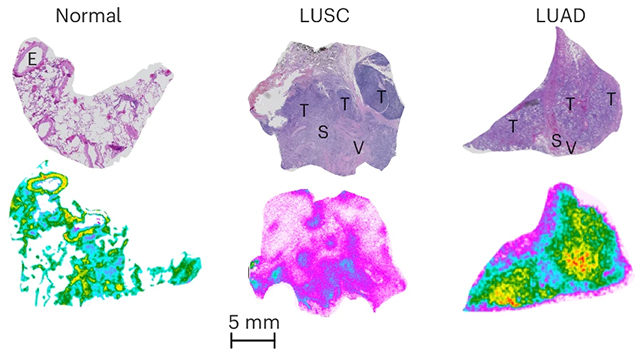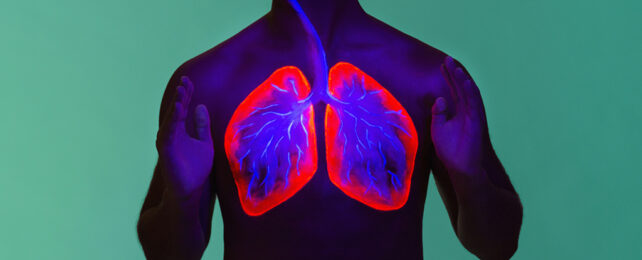Most of us would probably think of smoking or air pollution when it comes to lung cancer risk, but researchers have discovered an intriguing link between the disease and the quality of our diets.
The researchers, from the University of Florida and the University of Kentucky, found that the molecule glycogen, which stores the simple sugar glucose, could potentially act as a driver of some types of lung cancer.
Glycogen was found at higher levels in human tissue samples of lung adenocarcinoma, the type responsible for 40 percent of lung cancers worldwide. In tests on mice, the team found that more glycogen helped lung cancers to grow faster, while taking the molecule away led to restricted tumor growth.

The new study relies on a technique called spatial metabolomics, which enables scientists to identify specific small molecule characteristics in the context of their location inside tissue. Here, the team used a platform designed for tissue analysis.
"This platform offered a new lens through which to visualize diseases, enabling researchers to discern previously undiscovered molecular patterns and interactions with striking detail and depth of insight," says molecular biologist Ramon Sun, from the University of Florida.
Researchers have been looking at glycogen and its relationship to different types of cancer for some time. It appears this energy source can act like a sweet treat for cancer cells, giving it the fuel to grow fast enough to overwhelm our natural immune systems.
We know that glycogen comes from the carbohydrates we eat, and is an important fuel reserve in our muscles that our bodies tap into when we exercise. It essentially stores glucose that isn't needed right away.
It's also something that builds up as a result of a high-fat, high-carbohydrate diet. In this study, mice that were fed this diet saw much higher levels of lung cancer growth than mice fed either high-fat, high-carb, or control diets.
Further research will be needed to confirm a link to diet and lung cancer in humans, but it seems there's an association of some kind here.
"In the long term, our approach to cancer prevention should mirror the success of the anti-smoking campaign – placing greater emphasis on public awareness and policy-driven strategies that promote healthier dietary choices as a fundamental component of disease prevention," says Sun.
It's worth noting that the higher glycogen levels were only noted in tissue samples of lung adenocarcinoma in humans, not in other types of lung cancer – such as lung squamous cell carcinoma. This is something that will need further investigation.
For now, it's a reminder of just how important our diets are when it comes to overall health. Just as red meat and alcoholic drinks are believed to contribute to risk levels for certain types of cancer, we may soon have to add lung cancer to the list of risks associated with the Western-style diet.
"Lung cancer has not traditionally been thought of as a dietary-related disease," says Sun. "Diseases like pancreatic cancer or liver cancer, yes. However, when it comes to lung cancer, the idea that diet could play a role is rarely discussed."
The research has been published in Nature Metabolism.
